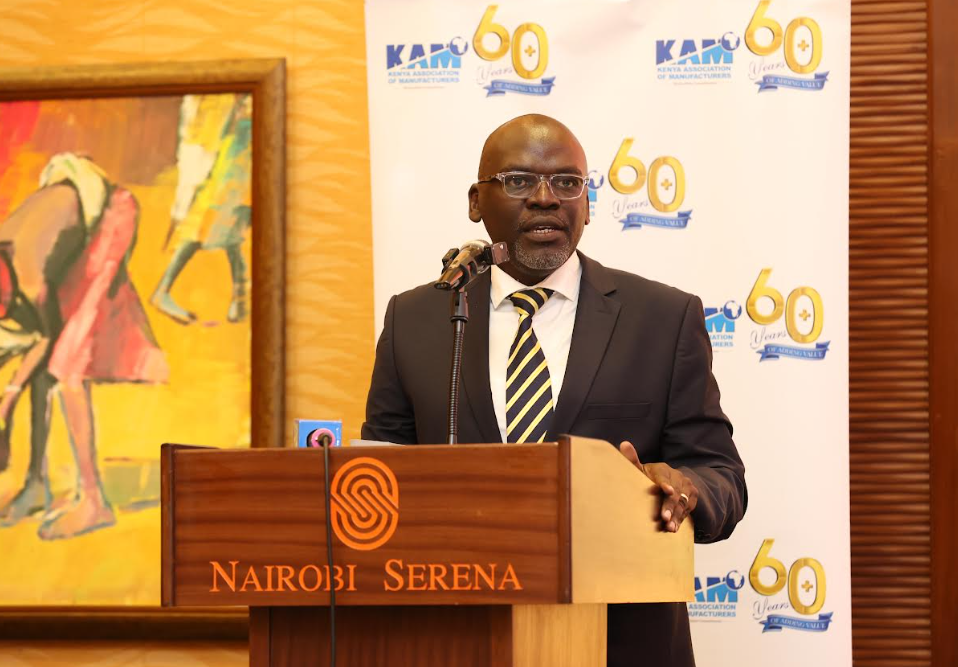
Types of businesses reserved for Tanzanians in TZ
Foreigners including Kenyans will not be allowed to engage in them
Some of the decisions, manufacturers say, are targeting Kenyan exports.
In Summary

Audio By Vocalize

HIGHER excise duty, levies and Tanzania's recent move barring foreigners from operating small businesses threaten East Africa's industrial growth, manufacturers in Kenya now say.
The move, they say will also lead to loss of intra-East African Community trade opportunities where partner states have already lost about 30 per cent of intra-regional trade through non-tariff barriers (NTBs) and distortions to the common market.
This, as other markets among them China, India and Turkey continue to enjoy a large share of the region’s market that should have benefited EAC partner states.
The Tanzania Finance Act 2025 and the amended Tanzania Excise (Management and Tariff) Act 2019, has introduced excise duties and an industrial development levy, at 10 and 15 per cent, respectively.
Some of the upward excise duty rate adjustments by Tanzania touch on potatoes, ice cream, whether or not containing cocoa, beer made from malt, wine, cider, opaque beer, vodka, whiskies, rum, fireworks, soap, cufflinks and studs and imported seats, with a higher duty on imports of up to 25 per cent.
Some of the taxes, manufacturers say, are targeting Kenyan exports.
Also, of concern is the recently gazetted Business Licensing (Prohibition of Business Activities for Non-Citizens) Order, 2025 that prohibits non-Tanzanian citizens from trading in 15 services, including the operation and ownership of Micro and Small Industries. The order includes significant penalties for violations.
According to the Kenya Association of Manufacturers (KAM), a significant number of Kenyans are engaged in economic activities, driven by advancements in EAC regional integration over the years, with free movement within the community.
“Kenyans have been taking up these opportunities across the trading bloc: in business, trade, investment, employment and even intermarriage. Therefore, the recent developments are quite disheartening,” KAM chief executive Tobias Alando said.
From the manufacturing sector’s perspective, some of the goods affected by the non-trade barriers include dairy, meat, sausages, steel, matchboxes, furniture, confectionery among others.
Alando said manufacturers are concerned over de-industrialisation within EAC, including Tanzania and Kenya, as companies may need to shut down their production lines as partner states opt to import from third parties.
The impact of Tanzania’s action will also lead to little or no movement of labour, capital and people, thus eroding EAC integration, he said.
“The EAC is the largest external market for Kenyan goods led by Uganda, followed by Tanzania and Rwanda. However, this is currently being threatened by measures by partner states which inhibit the free movement of goods, for instance the recent Tanzania Finance Act 2025 and Tanzania Excise (Management and Tariff) Act 2019, which have introduced discriminatory tax measures that have targeted Kenya's major exports,” Alando noted.
Kenya acknowledges and respects Tanzania’s sovereign rights–but regional integration is an important factor of socio-economic development, KAM notes.
“We call for consultations and coordination with the government of Tanzania to resolve the stalemate, to bring back regional integration and allow the free movement of people, goods and services as envisioned during the establishment of the East African Community,” Alando said.
Tanzania ranks as Kenya’s second-largest EAC trading partner after Uganda, with intra-community transfers of Sh63 billion in 2024. Kenya and Tanzania have had long-running trade disputes including bans on certain exports.
In December 2021, they signed an MoU to remove non-tariff barriers and pledged to improve cross-border trade and allow sharing of natural resources by eliminating immigration bottlenecks.
Investments, Trade and Industry CS Lee Kinyanjui said the Kenyan government is keen to resolve barriers to trade and ensure a deeper EAC integration that allows movement of goods and people.
“Kenya acknowledges and respects the sovereign rights of EAC Partner States to legislate on domestic matters but also believes in the importance of consultation, coordination and consistency in implementing policies that affect cross-border goods transfer,” Kinyanjui said in a statement.

Foreigners including Kenyans will not be allowed to engage in them